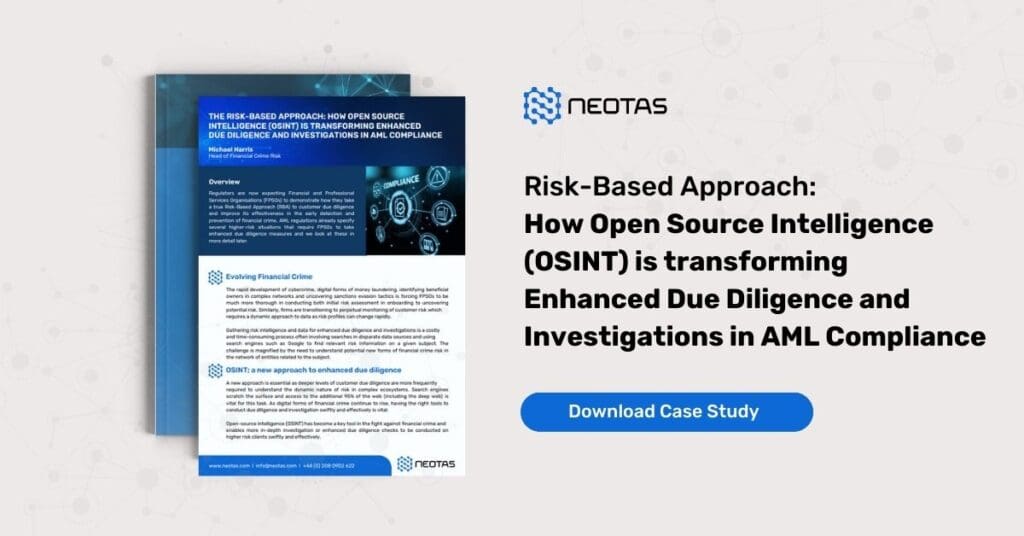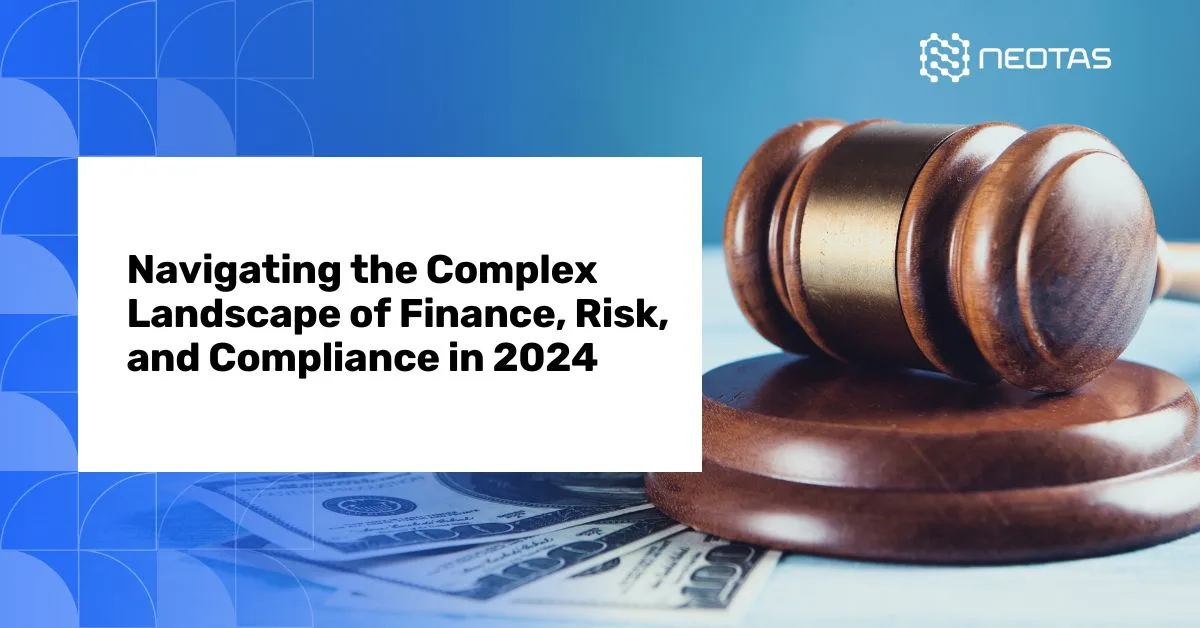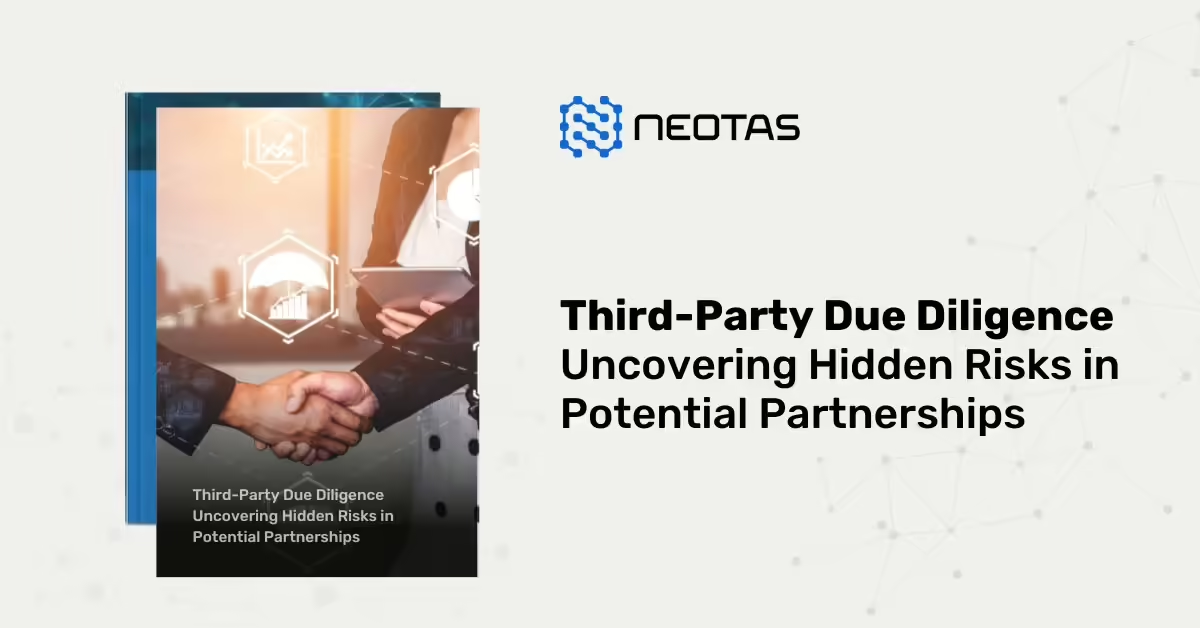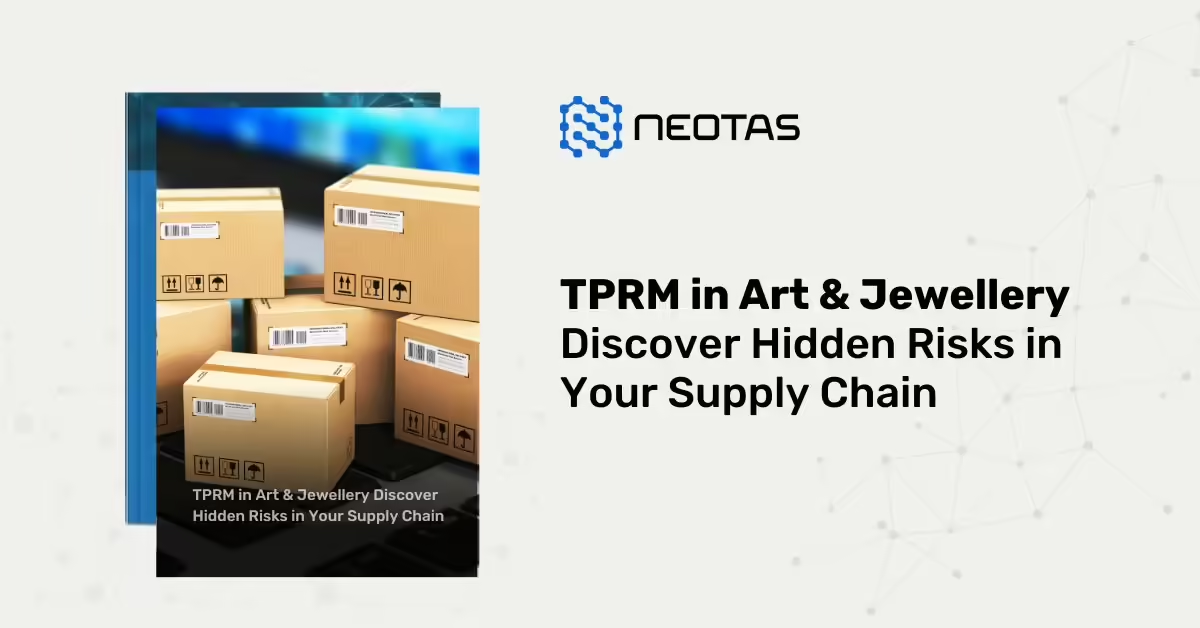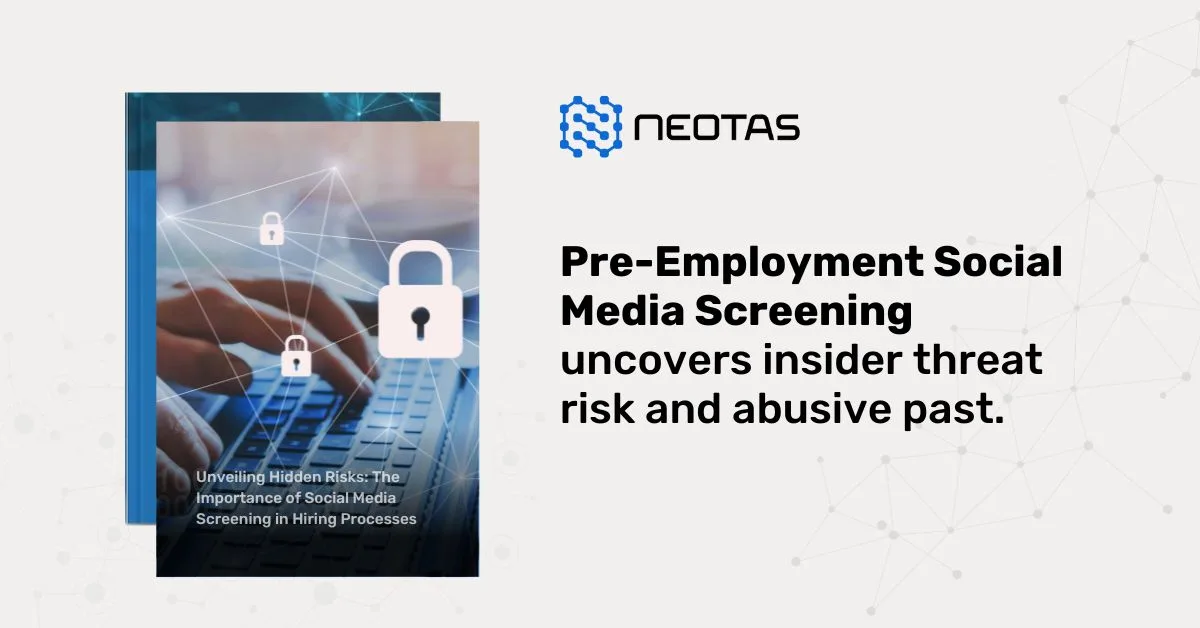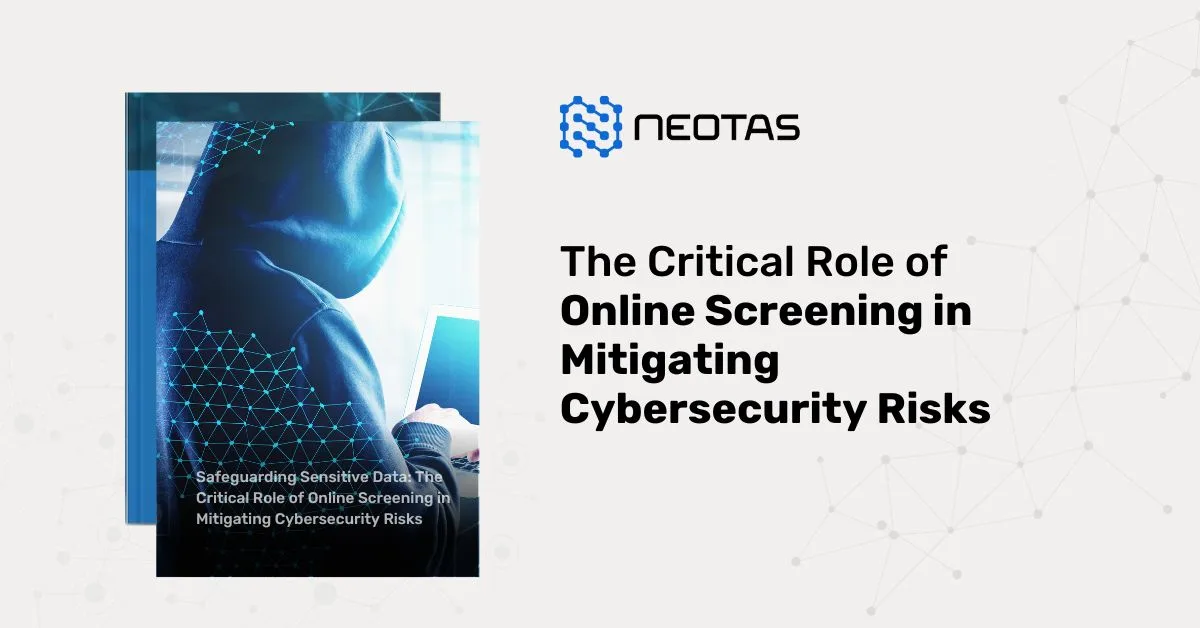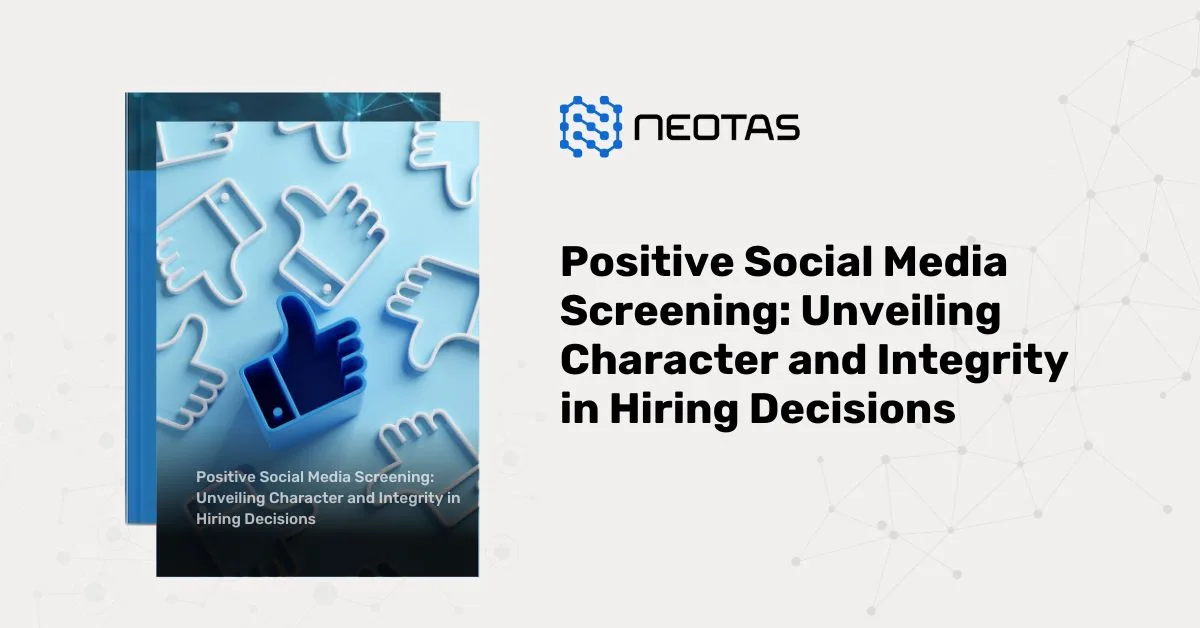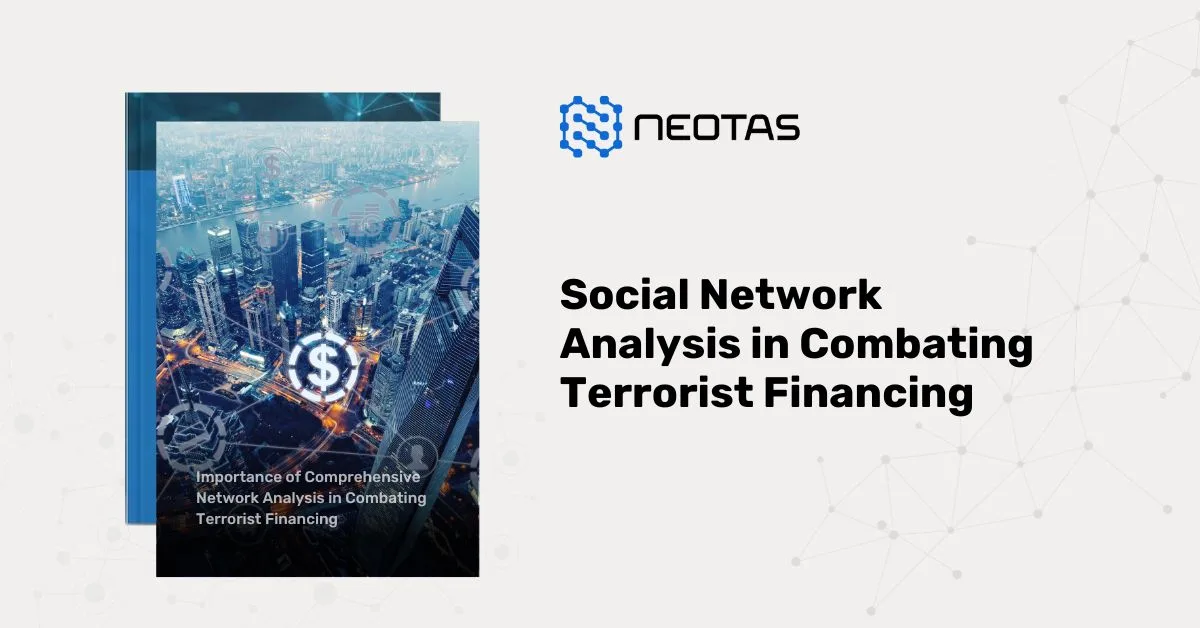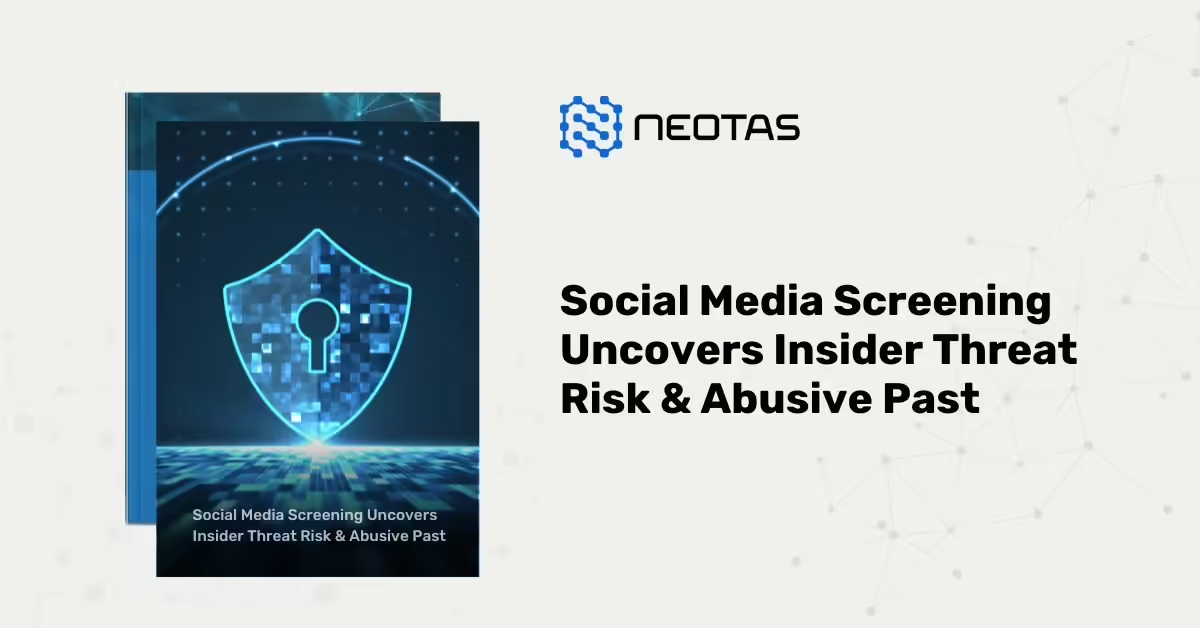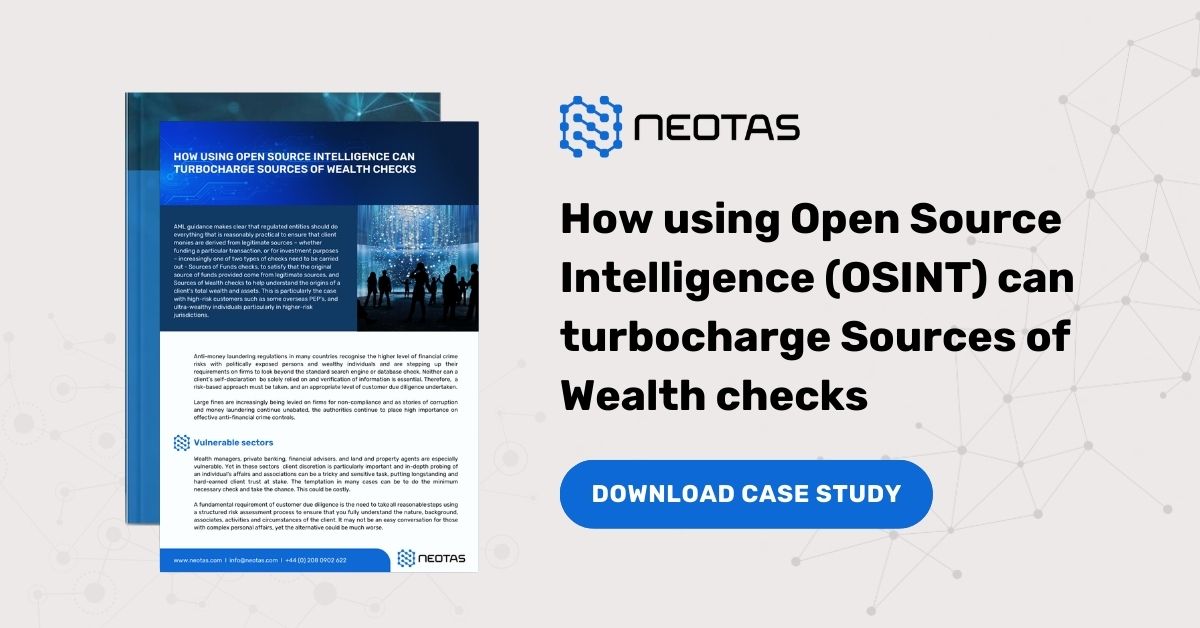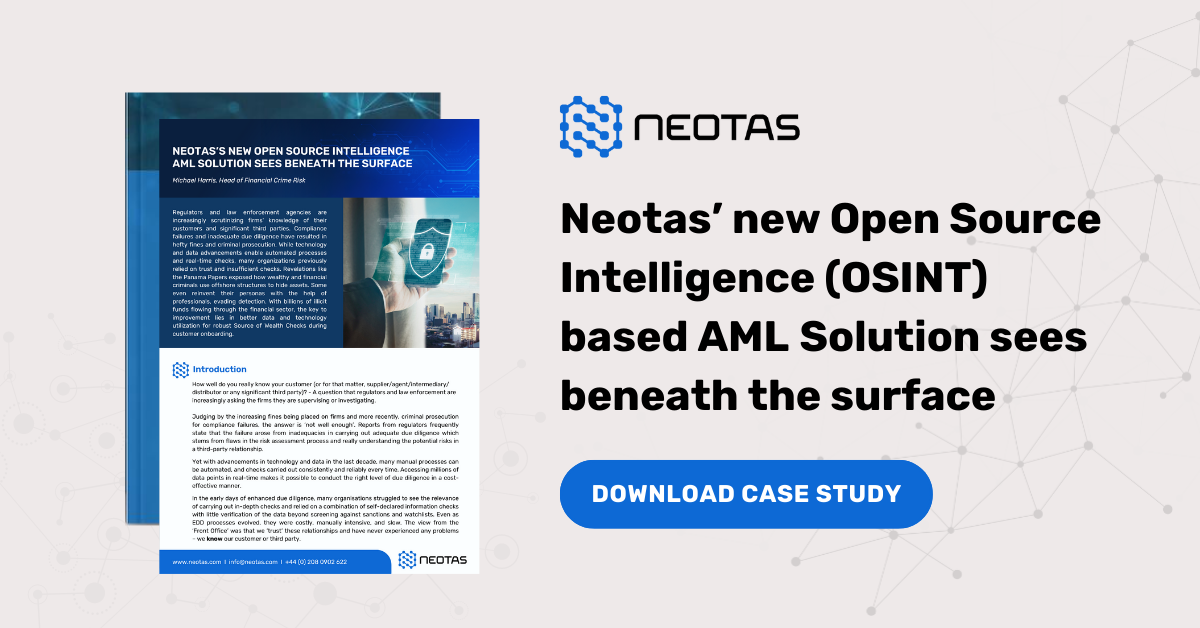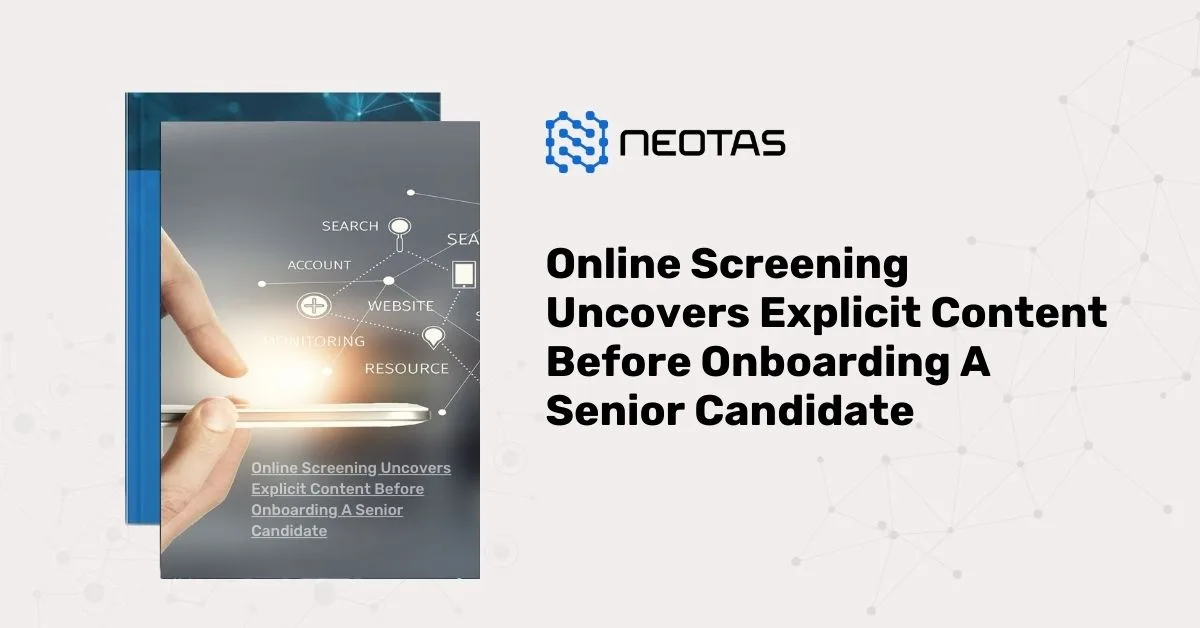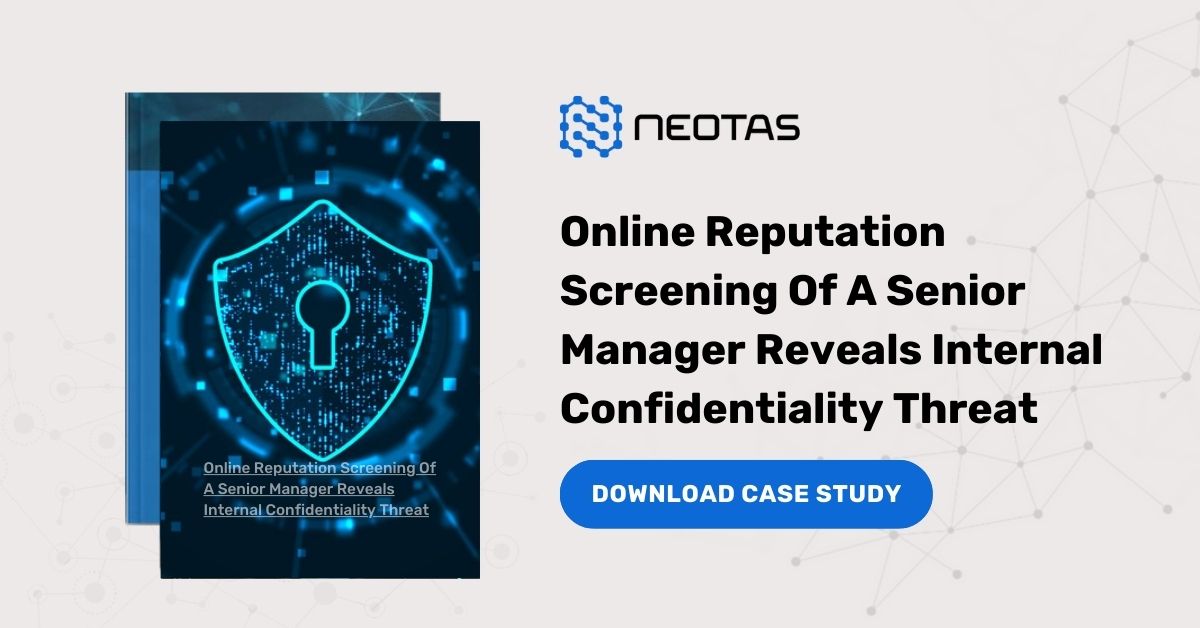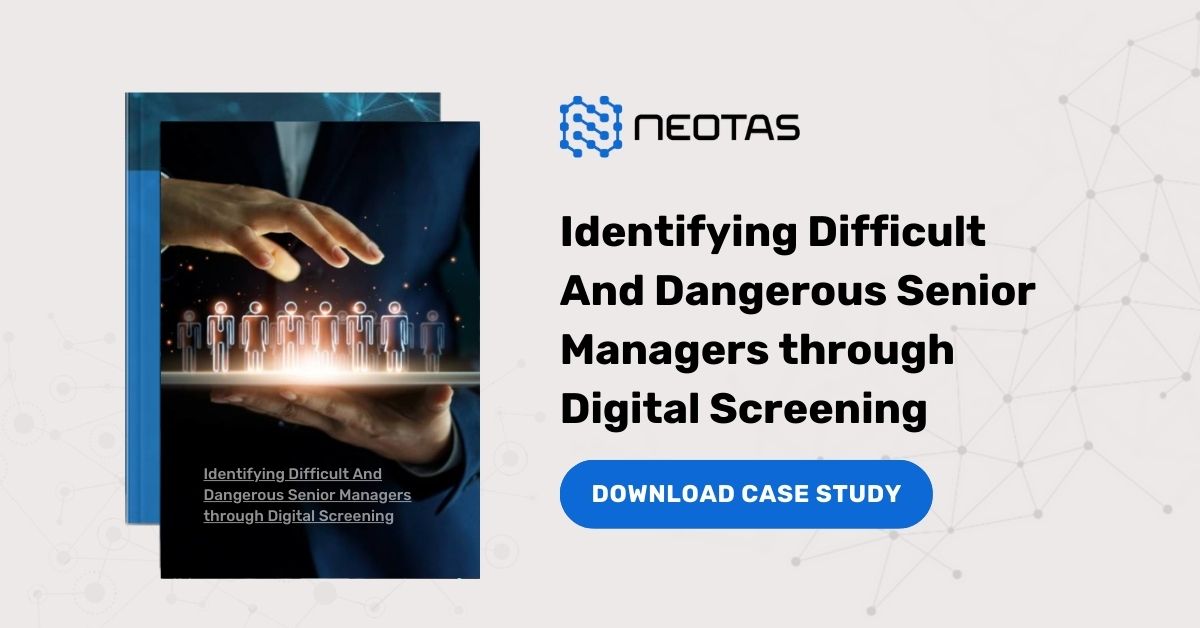Open Source Intelligence (OSINT) is transforming enhanced due diligence and investigations in AML compliance
Regulators are now expecting Financial Services Organizations (FSOs) to demonstrate how they take a true risk-based approach (RBA) to Enhanced Due Diligence and Customer Due Diligence to improve its effectiveness in early detection and prevention of financial crime.
AML compliance regulations already specify several higher risk situations that require FSOs to take Enhanced Due Diligence measures. This report outlines:
- OSINT; a new approach to enhanced due diligence
- Risk-Based Approach
- Powering up AML investigation
- Factors to consider when Risk Profiling a customer
- Mitigating risk with an appropriate level of Customer Due Diligence
- Ongoing monitoring
- Enhanced Due Diligence for higher-risk customer relationships and transactions
Download Your Case Study
How Neotas Due Diligence can help?
Neotas OSINT brings all the right data sources and tools into a single portal to turbocharge the EDD process Open Source Data is entirely public information that is stored online while Open Source Intelligence is the advanced analysis of actionable data points that Neotas applies to deliver enhanced due diligence reports in digital form. The sheer volume of Open Source Data would be overwhelming and impossible to sift through, however, using artificial intelligence and machine learning technology to identify specific risk categories and smart filters make it possible to identify and return only relevant and actionable risk data. Through the use of Natural Language Processing (NLP) technology, the Neotas platform can also process data in hundreds of languages. However, the Neotas OSINT solution uniquely combines the additional content from specialist datasets that are well established covering Sanctions, PEPs, Adverse Media, ESG, Corporate registry data through API connection from the Neotas platform.
FAQs on Risk-Based Approach to Open Source Intelligence (OSINT) based Enhanced Due Diligence
- What is a risk-based approach (RBA) to Customer Due Diligence (CDD)? A risk-based approach to CDD is a method where Financial Services Organizations (FSOs) assess and manage the level of risk associated with their customers, products, services, and transactions. It involves tailoring the intensity of due diligence measures to match the identified risks.
- Why do regulators expect FSOs to adopt a risk-based approach to CDD? Regulators expect FSOs to adopt a risk-based approach to CDD because it helps in early detection and prevention of financial crime. By understanding the risks associated with their customers, FSOs can allocate resources effectively and focus on higher-risk individuals or transactions.
- How can FSOs demonstrate a risk-based approach to CDD? FSOs can demonstrate a risk-based approach to CDD by implementing robust risk assessment frameworks that identify and assess the potential risks their customers may pose. They should document the risk assessment process, maintain adequate records, and implement appropriate controls and procedures based on the identified risks.
- What are the benefits of implementing a risk-based approach to CDD? Implementing a risk-based approach to CDD offers several benefits. It enables FSOs to allocate resources more efficiently, reduce compliance costs, and prioritize their efforts on higher-risk areas. It also enhances the effectiveness of their anti-money laundering (AML) measures by focusing on areas of greater vulnerability.
- What are Enhanced Due Diligence (EDD) measures? Enhanced Due Diligence (EDD) measures refer to additional measures that FSOs are required to take in higher-risk situations. These situations may involve customers or transactions that pose a higher risk of money laundering, terrorist financing, or other financial crimes. EDD measures are more comprehensive and involve obtaining additional information and conducting enhanced monitoring.
- What are examples of higher risk situations that require EDD measures? AML regulations specify several higher risk situations that require FSOs to take EDD measures. Examples include politically exposed persons (PEPs), high-risk jurisdictions, complex and unusual transactions, correspondent banking relationships, and customers with a history of financial crime.
- How can FSOs determine when to apply EDD measures? FSOs should have a risk assessment process in place to determine when to apply EDD measures. They should identify risk factors such as the nature of the customer’s business, their location, the types of products or services involved, and any known red flags or suspicious activities. By assessing these factors, FSOs can determine the appropriate level of due diligence required.
- Are FSOs required to apply EDD measures to all customers? No, EDD measures are not required for all customers. FSOs should apply EDD measures selectively, focusing on higher-risk customers or situations identified through their risk assessment process. Applying EDD measures to all customers would be impractical and resource-intensive.
- What steps can FSOs take to improve the effectiveness of their CDD processes? FSOs can take several steps to improve the effectiveness of their CDD processes. They can invest in advanced technology and analytics to enhance their risk assessment capabilities. They should also provide regular training to staff to ensure they understand the importance of CDD and how to identify and report suspicious activities. Additionally, FSOs should establish strong internal controls and conduct regular audits to monitor the effectiveness of their CDD processes.
- What are the consequences of not demonstrating a risk-based approach to CDD? Failure to demonstrate a risk-based approach to CDD can result in regulatory penalties, reputational damage, and increased risks of financial crime. Regulators may impose fines, sanctions, or other enforcement actions if FSOs.
Related Case Studies on Open Source Intelligence (OSINT)
- Neotas Open Source Intelligence (OSINT) based AML Solution sees beneath the surface
- ESG Risks Uncovered In Investigation For Global Private Equity Firm
- Management Due Diligence Reveals Abusive CEO
- Ongoing Monitoring Protects Credit Against Subsidiary Threat
- AML Compliance and Fraud Detection – How to Spot a Money Launderer and Prevent It

